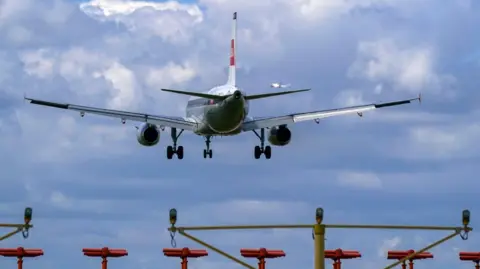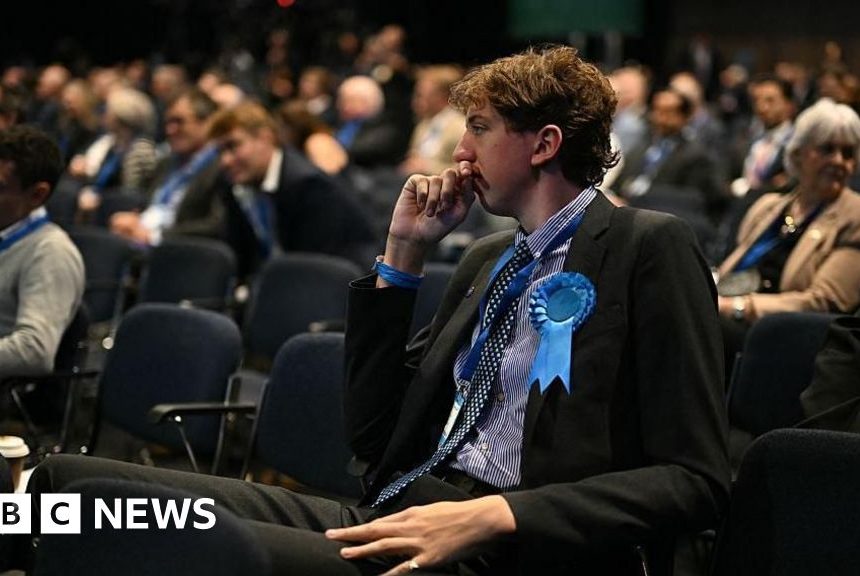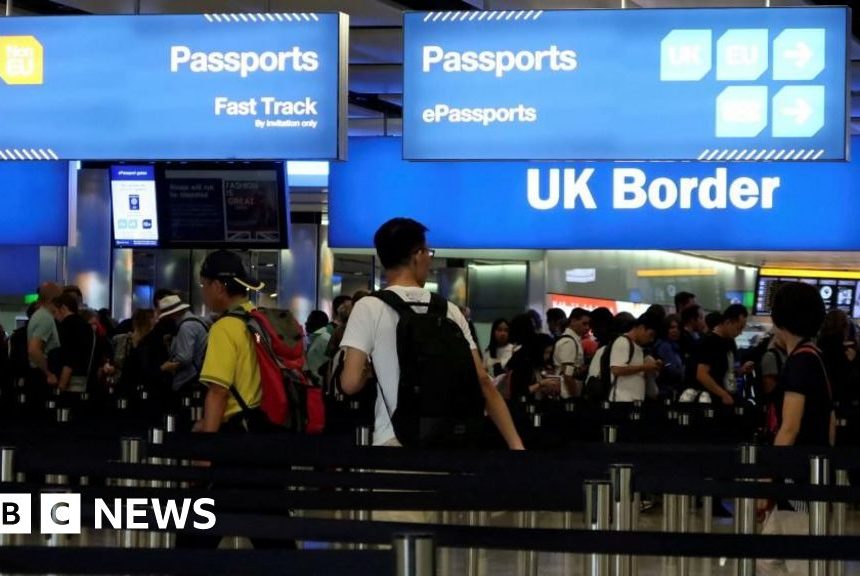Paul SeddonPolitical reporter
 PA Media
PA MediaThe government is set to begin negotiations to link the UK to the EU’s carbon trading regime, around six months after the sides agreed to open talks.
Labour says the move would allow companies to avoid a tax on high-emissions products the EU is planning to introduce from next year.
The negotiations, set to start next week, will also aim to broker a deal to reduce border checks on food products introduced after Brexit.
The UK has agreed to pay an “appropriate” financial contribution to the EU as part of the deals, which is likely to prove a key sticking point in the talks.
The agreement to open talks follows three days of closed-door meetings by EU ambassadors in Brussels over what level of payment to demand from the UK.
The Financial Times has reported France is leading demands for the UK to pay into the EU’s regional development pot as the price of striking the deals – a request that could prove politically difficult for Labour to navigate.
British ministers have previously said they are prepared to pay towards the cost of any EU “agencies, systems and databases” required to implement the deals, whilst ruling out general contributions into the EU budget.
The government has also agreed it is prepared to align some UK financial rules with those of the EU to make the deal work.
Labour has pitched the new deals as a means to boost economic growth by smoothing trading frictions, as part of its post-Brexit “reset” in EU relations.
However, the idea of alignment with EU regulations has been attacked by both the Conservatives and Reform UK as a betrayal of Brexit.
The demand for financial contributions could also prove tricky against the backdrop of this month’s Budget, where Chancellor Rachel Reeves is set to raise taxes to plug a shortfall against her spending rules that has emerged in the last year.
Carbon pricing
Introduced in 2005, the EU’s Emissions Trading Scheme (ETS) limits the amount of carbon that can be emitted each year by power stations and industrial sectors, including aviation for flights within the EU or to the UK and Switzerland.
Companies subject to the scheme can buy and trade allowances to emit carbon above these caps.
The resulting price is supposed to encourage firms to reduce their emissions by investing in green technology.
The UK left the EU’s scheme in the wake of Brexit and set up its own pricing scheme – which is much smaller, and where prices have generally been more volatile.
The government says linking to the EU’s much larger scheme could mean more stable prices for British firms. Switzerland has had such a deal with the 27-nation bloc since 2021, agreed after years of negotiation.
Linkage has also been pitched as a means to avoid a new border tax the EU is planning to introduce on its imports of high-carbon products, such as steel and cement, from January 2026. The UK is planning a similar tax of its own in 2027.
But it also presents political risks, amid a fracturing political consensus over the cost of achieving net zero goals to reduce carbon emissions.
Conservative shadow business secretary Andrew Griffith said following “Brussels red tape” was the “last thing the UK economy needs” – adding that Sir Keir Starmer “lacks the backbone to negotiate effectively for Britain”.
Nick Thomas-Symonds, the Labour minister responsible for EU relations, made the opposite argument the deals would “slash red tape” for firms.
Defence talks continue
The talks on the food products and emissions linking agreements come amid a looming deadline to agree a separate deal to allow British defence companies to contribute to military projects funded by EU defence loans.
The European Commission is planning to issue billions of pounds in loans in the coming years to help EU countries buy weapons together.
British ministers want to conclude a deal in the coming weeks to allow British companies to take part in the first round of bids from EU countries, with applications due by the end of this month.
It has also been reported that the EU is demanding an entry fee running to billions of euros before the UK to take part.
The two sides will also need to agree the maximum contribution British firms can make to projects.




